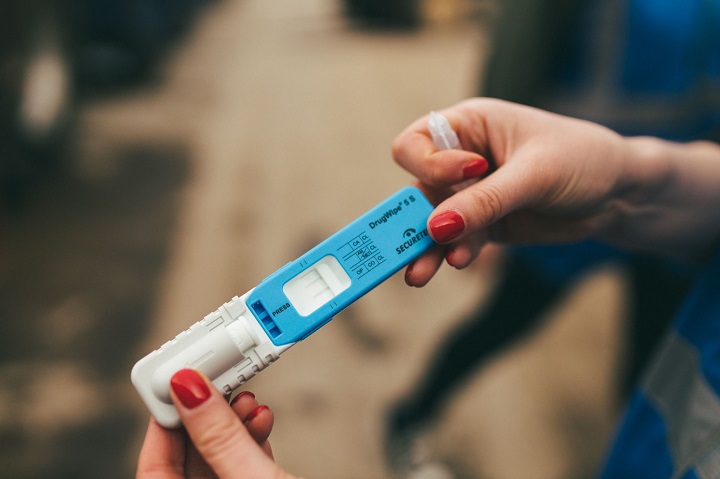
Image: D.tec International
Operation Limit, the UK’s nationally coordinated drink and drug driving enforcement campaign, has once again laid bare the growing and deadly threat of impaired driving on UK roads – particularly drug driving.
That’s according to D.tec International.
Between 1 December 2024 and 1 January 2025, police forces across England, Wales, and Northern Ireland carried out 58,675 roadside tests, leading to 8,648 arrests for drink and drug driving offences.
Among them, 2,782 drivers were arrested for both drink and drug driving – almost double the number recorded the previous year.
42.2% of DrugWipe roadside drug tests returned a positive result, compared with 9.7% of alcohol breath tests. In post-collision testing, 14.5% of drivers were over the alcohol limit – the highest rate recorded since 2019.
Ean Lewin, managing director of D.tec International, said: “These results confirm what we’ve feared for some time – drug driving is now one of the most serious threats to road safety in the UK.
“Operation Limit is a vital campaign, and we applaud every officer involved. But the sheer scale of what they’re uncovering shows that we urgently need to catch up – in awareness, political will and action.”
Data published by the DfT shows that in the year to June 2024, there were 1,607 road deaths and 29,540 killed or seriously injured (KSI) casualties
Ean said: “With one in five road deaths linked to drink or drugs, that’s more than 300 lives a year we could be saving. Add almost 27,000 serious injuries, and the pressure on the NHS, emergency services, and society is enormous. We’re all paying for it – in lives, in trauma, and in costs.”
D.tec International supplies DrugWipe to 43 police forces in the UK and fully backs Operation Limit. But the company is clear that roadside enforcement alone won’t solve this crisis.
Ean added: “We need a cultural shift.
“We need to treat drug driving with the same seriousness as drink driving – with better public education, more employer-led workplace testing, and a faster, more effective prosecution process.”
“One of the key barriers to swift enforcement in the UK is the complexity and delay in evidential testing, particularly for drug driving offences. Lewin pointed to international models that are delivering results.
“Countries like Australia and France have achieved real success in tackling drug driving by adopting saliva-based evidential testing with fast turnaround times. It’s helped them streamline enforcement, improve prosecution rates, and create a strong deterrent.
“The UK must now follow that lead. If we’re serious about saving lives, we need to modernise our systems and back our officers with the tools and support they need.”
Comment on this story